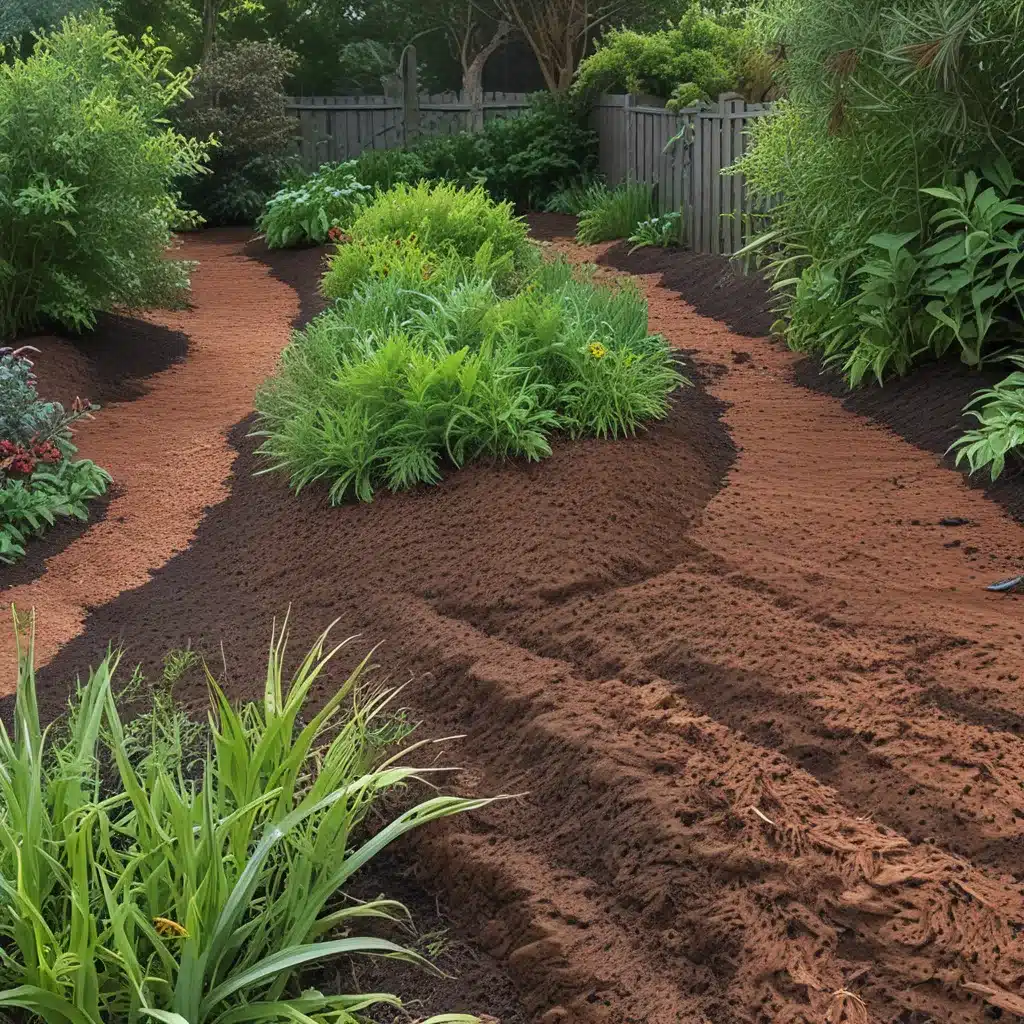Revamp Tired Garden Beds with Fresh Mulch and Compost
As a passionate gardener, I’ve always known the power of a little elbow grease and a whole lot of compost. But little did I know that my quest for lush, healthy beds would lead me down a rabbit hole of herbicide-contaminated manure, twisted and stunted plants, and a newfound appreciation for the importance of sourcing clean organic matter.
It all started a few years back when I decided to revamp the tired garden beds at my home in Temecula, California. I had visions of vibrant vegetables, towering tomatoes, and bursting berry bushes – but those dreams quickly turned into a gardening nightmare.
Manure Madness: A Cautionary Tale
I did what any self-respecting organic gardener would do – I reached out to a local dairy farmer and scored a trailer full of well-aged cow manure. “This is going to be the secret to my gardening success!” I thought, as I eagerly spread that rich, earthy compost across my raised beds.
But just a few weeks later, everything started going horribly wrong. My tomato and eggplant transplants began twisting and curling, their leaves thick and deformed. The blackberry leaves looked sickly, turning brown at the edges. Even my beloved mulberry tree was exhibiting strange symptoms.
I reached out to the local Master Gardeners, but they were stumped. It wasn’t until I started digging deeper that I uncovered the real culprit – a persistent herbicide called aminopyralid, which had contaminated the dairy farmer’s hay fields and subsequently made its way into his manure.
The Herbicide Haunting
Turns out, aminopyralid is a nasty little bugger that can wreak havoc in the garden, even months or years after its initial application. And the worst part? It’s showing up in all sorts of organic materials, from hay and straw to commercially produced compost and soil.
After a few frantic phone calls, I was able to track down the source of the contamination. The dairy farmer had recently tried a new weed-control product on his hay fields, and unbeknownst to him, it contained the dreaded aminopyralid. This potent herbicide had then passed through his cows, concentrated in their manure, and effectively poisoned my entire garden.
Rebuilding from the Ashes
Needless to say, I was devastated. I had lost the better part of my growing season, not to mention hundreds of dollars’ worth of plants and produce. But instead of throwing in the trowel, I decided to use this experience as a springboard for something greater.
I reached out to my friend Carolyn, who owns the local natural landscaping company, and asked if I could write an article warning other gardeners about the dangers of contaminated manure. She agreed, and that article ended up launching my own writing career, leading to gigs with Mother Earth News and the creation of my book, “Compost Everything: The Good Guide to Extreme Composting.”
Composting to the Rescue
Through my research and personal experiences, I’ve learned that the key to building a healthy, herbicide-free garden lies in creating your own nutrient-rich compost. By sourcing clean, untainted organic materials and carefully monitoring the composting process, you can create a soil amendment that’s free of persistent chemicals and teeming with beneficial microbes.
These days, I’m a bit of a compost evangelist. I’ve perfected my own recipe, which includes a blend of high-quality topsoil, aged compost, shredded leaves, mineralized soil, and a touch of vermicompost (that’s worm poop to you and me). I also love using a thick layer of mulch to protect my beds and keep them moist, whether it’s wheat straw, arborist wood chips, or my personal favorite – shredded leaves.
And when it comes to watering, I’ve got a few tricks up my sleeve. Soaker hoses, emitter tubing, and drip irrigation systems have become my best friends, allowing me to deliver water directly to the roots of my plants while minimizing evaporation and wasteful overhead watering.
The Lessons Learned
Looking back on my manure-induced gardening disaster, I can say with certainty that it was a blessing in disguise. Not only did it launch my writing career, but it also instilled in me a deep appreciation for the importance of sourcing clean, uncontaminated organic matter.
These days, I’m more cautious than ever when it comes to what I bring into my garden. I carefully vet any compost, manure, or soil amendments, and I’m not afraid to walk away from a supplier if I have even the slightest inkling of doubt. And when it comes to my own compost, I treat it like the precious resource it is, meticulously monitoring the process to ensure it’s free of any persistent herbicides or other nasty surprises.
So, if you’re looking to revamp your tired garden beds, take it from me – ditch the potentially contaminated manure and focus on building your own nutrient-rich compost. With a little elbow grease and a whole lot of love, you can transform even the most bedraggled beds into lush, thriving oases of productivity and beauty. And who knows, maybe your gardening journey will even lead you down an unexpected path, just like mine did.




